From pre-cooked eggs in a pot to peeled garlic and grated cheese, ultra-prepared foods are on the rise as retailers try to appeal to time-poor shoppers who want to exert minimal effort in the kitchen.
Although these shortcuts may be looked down upon by celebrity chefs (Gordon Ramsay once said he hates those who take “bullshit shortcuts to get the job done faster”), many revel in their efficiency.
The brand, aptly named ‘Very Lazy’, offers products such as pre-chopped garlic, red chillies and ginger to help speed up the cooking process, while pre-grated cheese is a staple on supermarket shelves.
Prepared foods save time and are often used by people with disabilities, such as people with fine motor problems or people with arthritis.
Quick methods now appear to have gone a step further as M&S introduced its ‘pre-poached eggs’, which only need a brief blast in the microwave to become perfectly runny.
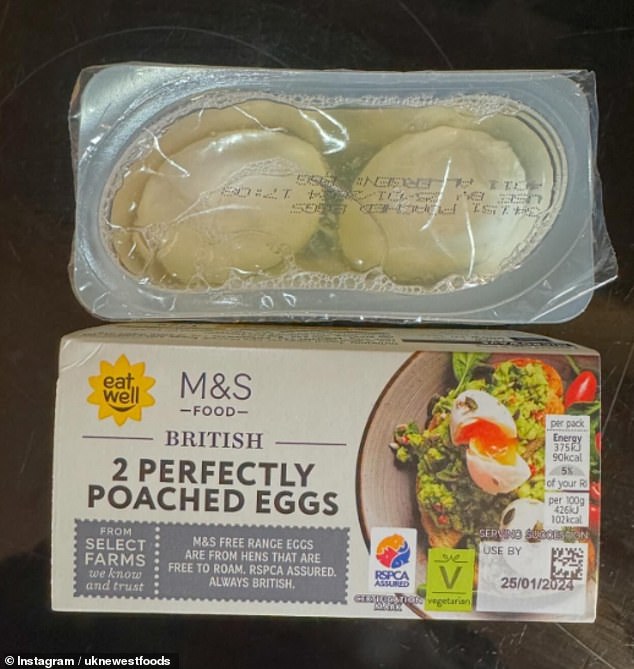
M&S has unveiled the latest example of ‘convenience food’ with the launch of poached eggs in stores
The eggs are sold in pairs for £2 and are made by sealing the egg in a vacuum bag before submerging it in a water bath.
They are then cooked to a precise and constant temperature, and the method means they remain liquid until the customer reheats them at home.
The art of cooking the perfect poached egg is difficult to perfect: it requires a swirl of water and a splash of white wine vinegar, only for the eggs to turn out separate or vaguely fishy anyway.
So it’s easy to see the temptation of a pre-made variant, but the idea has generated very mixed reactions online.
One social media user said: “That’s very vague and very expensive for two eggs.”
Another added: ‘I’ve taught my children to poach eggs, it’s a basic skill!’
One simply said: ‘What the hell is this?’
While prepared meals may be quicker and easier, customers are often forced to compromise on quality or price.
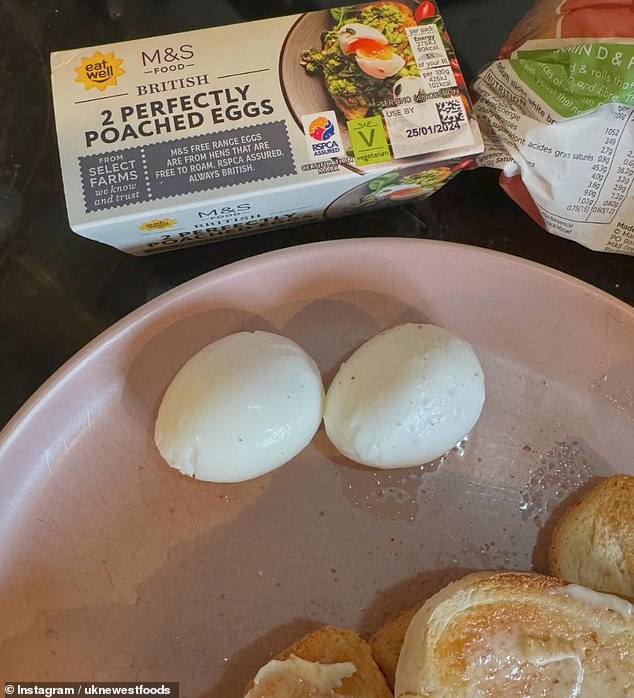

M&S’s poached eggs only need two minutes in the microwave, but some say they are more like soft-boiled eggs.


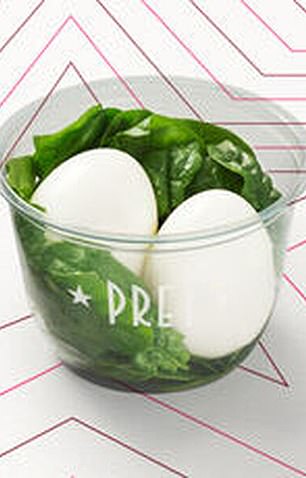

Pre-cooked eggs in pots are often sold as a snack in supermarket meal deals and offer a quick dose of protein. Left: M&S. Right: Pret a Manger
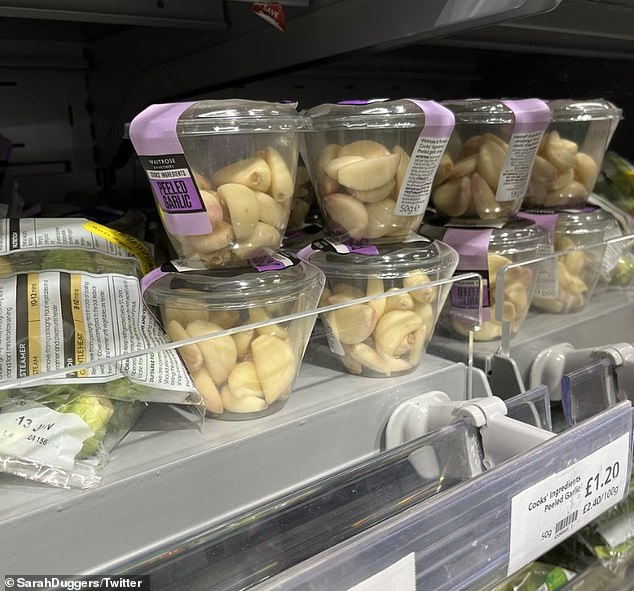

Social media users were left divided last year after seeing peeled garlic on sale in “unnecessary plastic pots” in Waitrose.
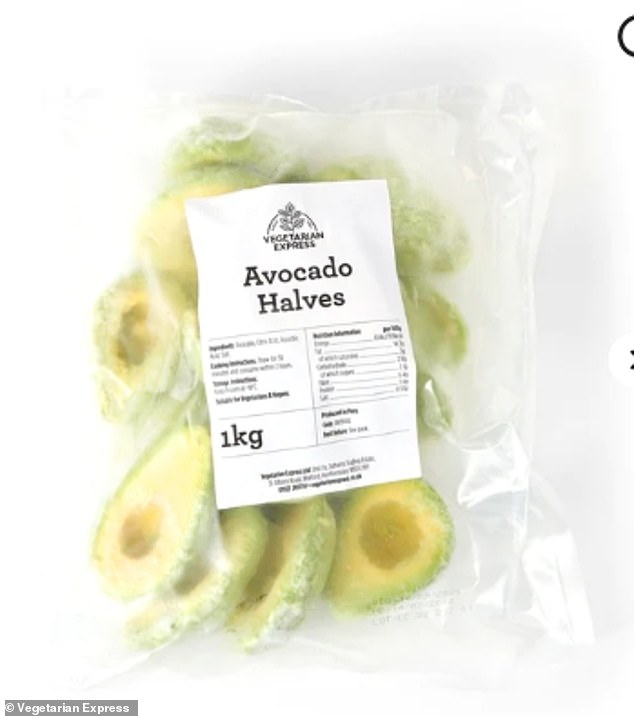

Vegetarian Express offers peeled and ready-to-eat avocado halves: another example of a prepared meal
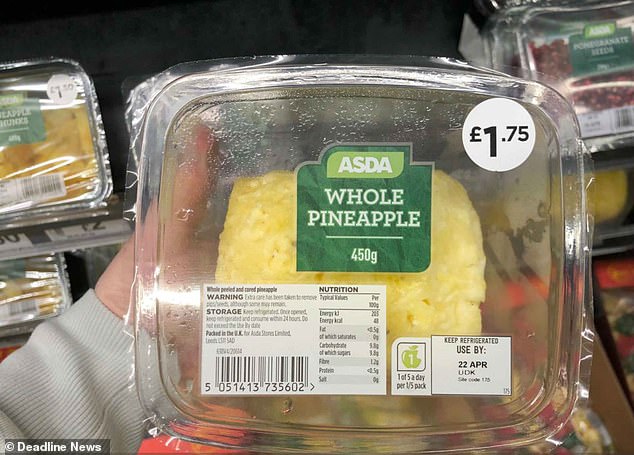

Asda even stocks a whole, peeled and cored pineapple, sealed inside a plastic container, for customers to enjoy.
Some people noted that the eggs seemed more soft-boiled than the classic poached form.
The supermarket also sells six regular free-range eggs for £1.30, meaning customers will pay five times as much for the privilege of a ready-to-eat egg.
Some convenience foods, such as Waitrose’s peeled garlic and Whole Foods’ pre-peeled oranges, have also received negative reactions after being stripped of their natural covering and placed in plastic containers.
Peeled oranges have since been removed from shelves.
However, many have also praised edible products for not only saving time but also increasing accessibility in the food industry.
People with disabilities credit pre-cut options for helping to make their lives easier.
Emily Ponroy Smith, 36, from Wiltshire, told FEMAIL: ‘As a disabled person I use a lot of prepared foods, especially things like herbs and vegetables, things that require cutting and peeling.
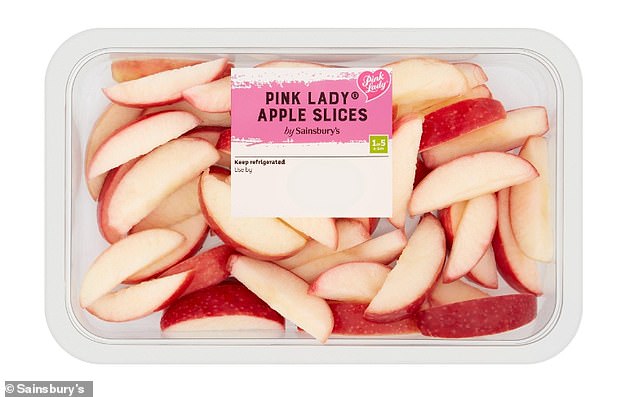

Sainsbury’s has taken the task of cutting an apple off your hands
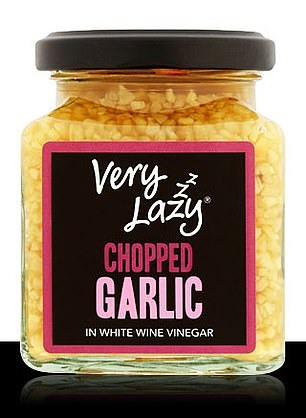

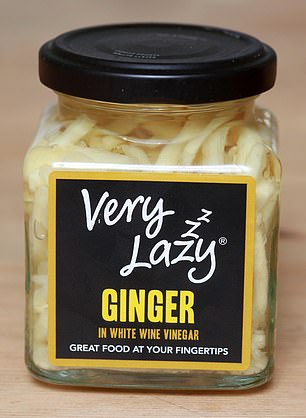

Very Lazy is a go-to brand for pre-chopped cooking ingredients such as pre-chopped garlic, ginger, and red chili peppers.
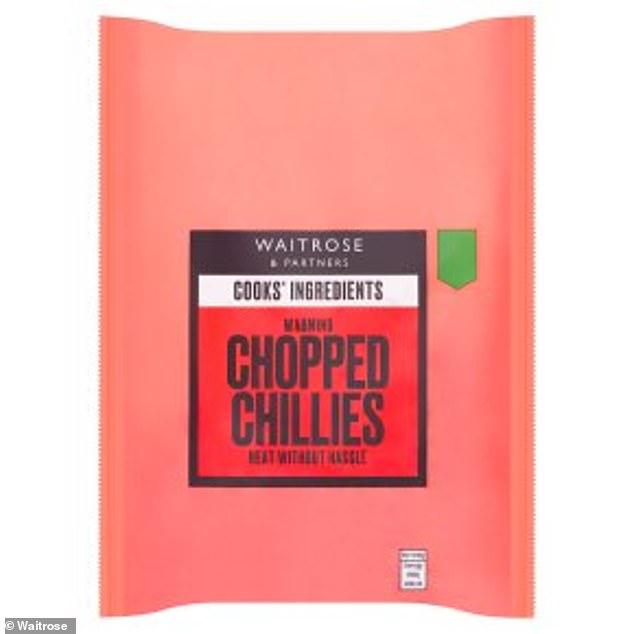

If you don’t want to have to chop chillies on your plate, Waitrose has done it for you.
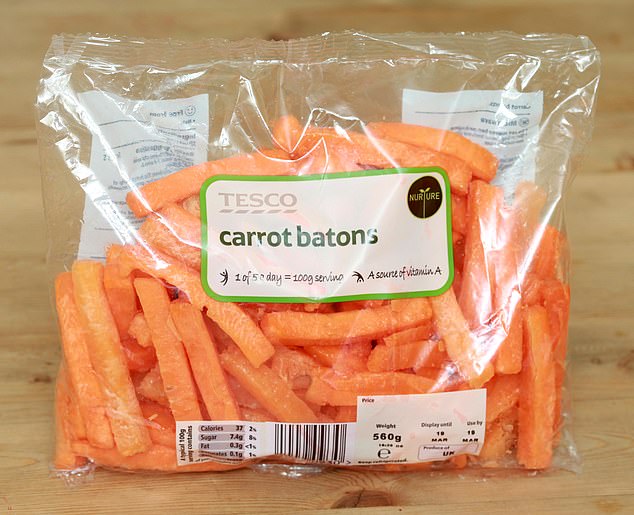

Carrots now come in “ball” shape, to save consumers the effort of cutting them before cooking a meal.


Peeling potatoes can often seem like a time-consuming task, but Asda sells ready-to-eat potatoes.
‘In particular, I use things like frozen chopped ginger, chopped vegetables, etc. due to dexterity issues and lack of strength in my hands. It definitely makes it easier for a disabled person to prepare nutritious and balanced meals.
“It’s not perfect though, many of the convenience foods come with extra packaging.”
Meanwhile, productivity consultant Juliet Landau Pope told FEMAIL: ‘From a time management perspective, pre-packaged salads, for example, have many benefits.
‘Consider how much time, energy and effort it takes to select, wash, peel, chop and cut fresh vegetables instead of simply opening a package and pouring them into a bowl. And don’t forget the time (and water) you save by not washing your cutting board, peelers, and knives.
‘For anyone (like me) with a disability that affects fine motor skills, minced garlic or grated cheese is an absolute blessing. And there are also arguments in favor of reducing food waste.
“I love cooking with ginger, for example, but I only use very small quantities, so rather than buying a whole root and leaving most of it languishing at the bottom of the refrigerator, I prefer to buy frozen cubes.”
Meanwhile, companies like HelloFresh and Gousto offer ‘recipe boxes’ with pre-packaged ingredients containing the exact amount needed for the recipe; the first will reach global net revenues of 7.6 billion euros in 2022.
Ready meals have always been popular, but they have become more appealing thanks to the likes of Charlie Bigham and COOK, who claim to offer a more substantial offering than traditionally unhealthy options.
